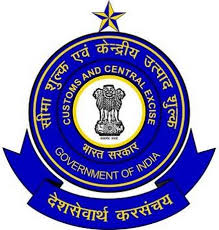The Supreme Court, on 11th July 2022, Monday, sought the response of the Central Government on a Public Interest Litigation filed by a Chartered Accountant seeking directions for implementation of a system of electronic (digital) generation of Document Identification Number (DIN) for all communications sent by GST officers to the tax payers and other concerned persons.
Considering the submissions made by Advocate, Ms. Charu Mathur, appearing on behalf of the petitioner, the Bench comprising Justices M.R. Shah and B.V Nagarathna noted that as on date only two states, namely Karnataka and Kerala have the DIN system in place, while the other States are yet to implement the same.
“From the averments it appears that some of the States namely, Kerala and Karnataka have implemented the system…for all communications by the State tax officers to send to tax payers and other concerned persons. A grievance is voiced that other states have not implemented the same. One advance copy be furnished to Central Agency and Balbir Singh, ASG whom we requested to appear in the matter. Put up on the 18th.”
Apart from directing respondents to take steps for implementation of the DIN system the petition prays for directions to the GST Council to consider and take policy decision in respect of implementation by all states; issue direction to the Central Government to introduce centralised DIN for the entire country.
As per the petition, pursuant to a circular dated 23rd December 2019 issued by the Central Board of Indirect Taxes and Customs (CBIC) quoting of DIN in all the communications sent by any office of the Board to the taxpayers and others concerned persons was made mandatory. Therefore, while DIN is applicable in all communications from Central Government tax officials, the same is not a mandate for the State Government GST officers. The petition argues that the same is against the objectives of transparency and accountability in indirect tax administration. The petition also notes that recently, the Ministry of Corporate Affairs mandated mentioning of Service Request Number (SRN) in all communications to Companies, LLPs, their officers, auditors etc. The Finance Ministry in a press release dated November 07, 2019 have also stated that the Government has executed the DIN system in the direct tax administration. Furthermore, any communication from GST or Customs or Central Excise Department henceforth, without a computer generated DIN, the Ministry had observed, would be considered invalid and non est in law.
Previously, the petitioner had filed RTI application before the CPIO, CBIC seeking response to the below-mentioned query.
“6. What is the requirement of quoting DIN in cases where state tax officers issue summons? If there is no such requirement, how CBIC make sure section 70 powers are not misused by state officers? Please provide details of guidelines, if any.”
The authorities had responded as under –
“However, information as to whether any such Circulars/ Instructions/ Guidelines in respect of DIN, have been issued by the any State, is not available with this office.”
Thereafter, the petitioner filed an RTI application before the CPIO, GST Council and found out that no directions have been passed by it in respect to implementation of the system of DIN generation on communications sent by state tax offices.
The petition has also sent communication to the PMO and filed several RTIs to obtain information with respect to States. As per the response received, Delhi and Maharashtra have no such system in place. It appears that only Kerala and Karnataka have implemented the DIN system as on date.
The petition avers –
“When the tagline of GST is “one nation one tax” then issuance of DIN should be made compulsory for both CGST and SGST departments.”
The petition submits that DIN is a 20-digit unique number generated digitally in an alphanumeric code
The benefits of DIN as enumerated in the petition are as under –
- It creates a digital directory for maintaining a proper audit trail of communications sent to taxpayers and other concerned persons.
- It provides the recipient of such communication a digital facility to ascertain the genuineness of the communication.
- It provides transparency in all communications with the department.
- Implementation of document identification number ensures the authenticity of such notices and protects a taxpayer from unnecessary harassment
The matter is to be next listed on 18th July 2022.
Case Title: Pradeep Goyal v. Union of India And Ors.
Source: livelaw.in
***
Don’t miss the next Tax Update / Article / Judicial pronouncement
Subscribe to our newsletter for FREE to stay updated on GST Law
Resolve your GST queries from national level experts on GST free of cost
TW Editorial Team comprises of team of experienced Chartered Accountants and Advocates devoted to spread the knowledge of GST amongst the various stakeholders.




